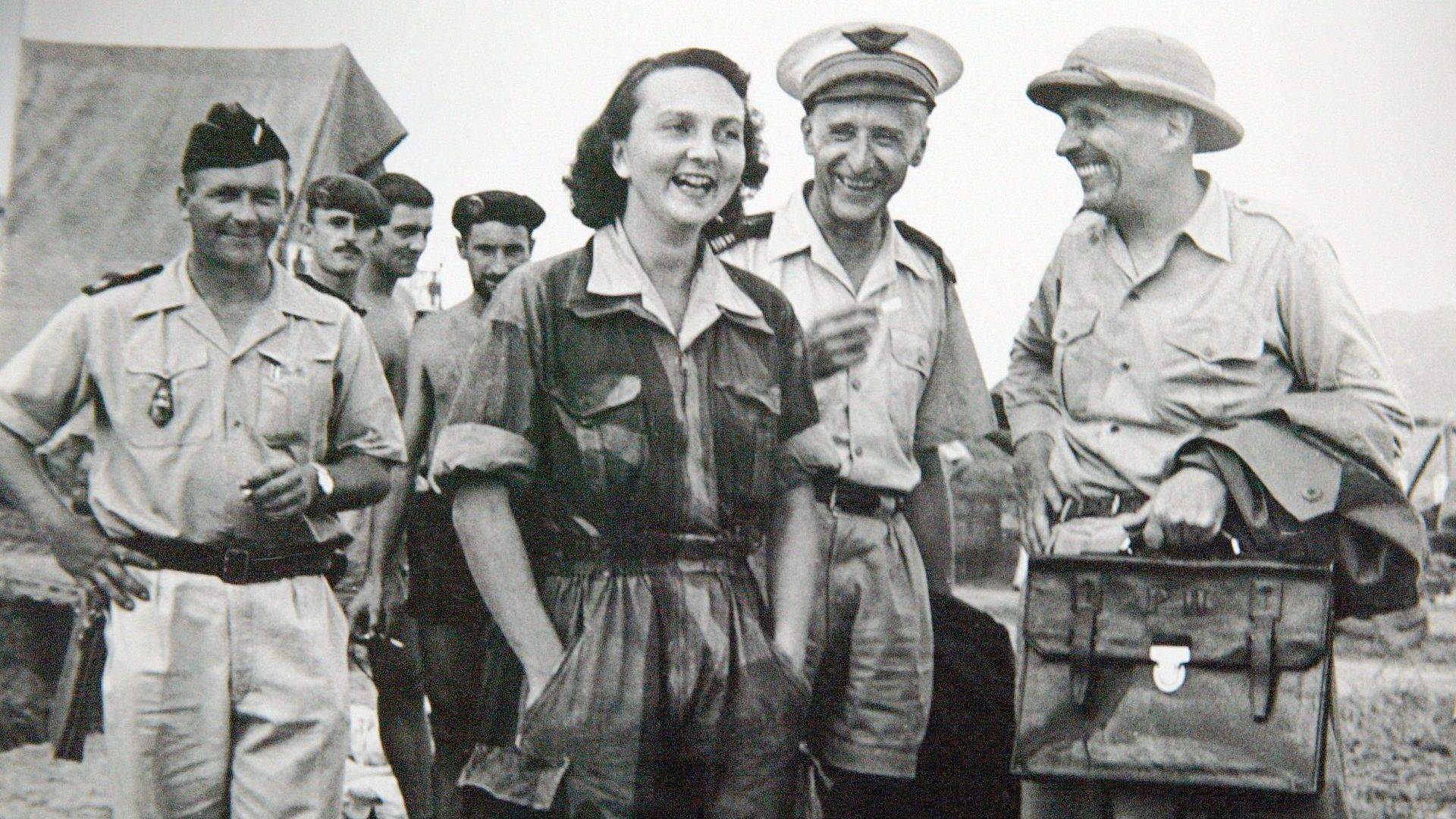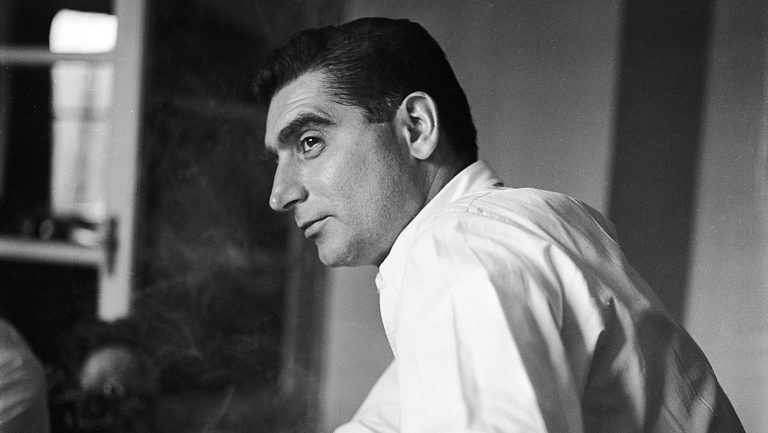On March 28, 1954, a French C-47 aircraft landed at Dien Bien Phu in French Indochina for what was supposed to be a quick stop. The flight was part of a medical relief effort, hastened by the Vietminh’s onslaught against a fortress that had come to symbolise the little of what was left of French Indochina.
The crew included Geneviève de Galard, a French aristocrat whose commitment to service had led her to enlist in the French Air Force as a flight nurse. Now, with Vietminh artillery peppering the fort and thick fog closing in, it fell to Geneviève to load the injured servicemen aboard the C-47 so they might be airlifted to the relative safety of French-occupied Hanoi. It would never take off.
“We were putting the wounded on to the plane when a mechanic came over and told us we couldn’t take off because the oil tank had been severely damaged,” Geneviève de Galard later reflected. “Everyone was very upset, most especially the wounded, who believed they were about to escape this hellish place.” A day later, the C-47 was destroyed by enemy ordnance.
With escape now impossible, de Galard simply rolled up her sleeves and set to work treating the injured servicemen in the fort’s field hospital. As she remembered: “I was charged with the care of the most grievously wounded in the minuscule subterranean hospital we called the ‘surgical unit’.”
Such was the horror she encountered beneath Dien Bien Phu, almost half a century passed before Geneviève de Galard felt able to discuss the matter and then only in passing. It fell to Time magazine to outline the extent of the hardship she faced and the courage she displayed: “Amid the stench of death, antiseptics and rotting wounds, Nurse de Galard lost 18 pounds in work and worry… [and while] she had her own dugout with silk sheets, made from parachutes… more often she would sleep on a cot beside the wounded.
Not only did Geneviève refuse to complain, she informed the higher-ups that: “I am glad I am trapped. I am proud to be here.”
When Dien Bien Phu fell into enemy hands on May 9, Geneviève was imprisoned alongside her patients. Eventually liberated as part of a prisoners of war exchange, she returned to her homeland for an emotional reunion with her mother, the Countess de Galard.
Then came a blaze of publicity with which Geneviève never seemed comfortable. Indeed, while it was one thing to receive both the Légion d´honneur and the Croix de Guerre, it was another thing entirely for this modest Catholic lady to receive a tickertape parade on Broadway and the Medal of Freedom from President Eisenhower at the White House.
As for why she was so ill at ease in the spotlight, it wouldn’t become common knowledge until the publication of her memoir. “During that time,” she wrote in reference to her days in the sun, “my prisoner comrades, many among them wounded, died on the death marches and in the Vietminh concentration camps.”
Modest, humble, ever determined to share her acclaim – it’s little wonder Geneviève de Galard was nicknamed “The Angel of Dien Bien Phu”, nor that she underplayed the title, aware perhaps that she wasn’t the only woman who went the extra mile in the jungles of Indochina…
Born into rare privilege in Paris in 1925, it’s easy to imagine someone like Geneviève de Galard aspiring to little more than a good box at the opera and a standing invitation to all the best parties. That she took the route she did would seem to have been inspired by her family’s experiences during the second world war, where they were forced to leave the capital and set up home in a south of France that was a very long way from being what it would later become famous for.
Determined to make a difference to postwar France, Geneviève passed the state nursing exam before, to the surprise – but not the dissatisfaction – of her family, she enlisted in the French Air Force.
With France’s overseas empire falling apart with equivalent speed to that of the UK, it mightn’t seem so surprising that de Galard was spirited off to the far side of the world. However, it needs stressing that Geneviève volunteered to serve in Indochina, aware of the dangers but equally conscious of the dire need for competent medical staff.
As for anyone who thinks de Gallard revelled in her postwar celebrity, it also needs to be pointed out that she didn’t write her memoir – Une femme à Diên Biên Phu – until after her husband, Colonel Jean de Heaulme de Boutsocq, retired from military service. “People [had] started to ask me to tell my story for the sake of history,” she remarked – almost apologetically – upon the book’s publication in 2003. “It is testimony to the courage and extraordinary solidarity with those men with whom I served – the French, but also the Legionnaires and the troops of the French Union from around the world – and the Vietnamese with whom we fought.”
An international bestseller, Une femme was published in English-speaking markets in 2010 as The Angel of Dien Bien Phu. This must have caused Mme de Galard to cringe yet again, perhaps because it was now apparent that, contrary to the original story, Geneviève wasn’t the only woman at the fortress, nor the only one to treat the wounded.
On the advice of Field Marshal Montgomery – who’d conducted a lengthy study into the dangers venereal disease posed to the modern soldier – the French operated mobile brothels at each of their bases in Indochina. With the end nigh and few people in the mood for sex, the professional women at Dien Bien Phu received a crash course in field nursing from Geneviève de Galard.
When the fort fell, these 18 Vietnamese ladies were disappeared by the Vietminh for what was euphemistically referred to as “re-education”. That they aren’t mentioned in de Galard’s memoir isn’t surprising since, given her husband’s military service, she was aware that the field brothels were a matter the French higher-ups had no interest in discussing. As such, the absence of these forgotten angels is further proof of Geneviève de Galard’s understanding of loyalty.
Would that the people whom she served had as great a sense of loyalty to all those who were on hand the day French Indochina died.




